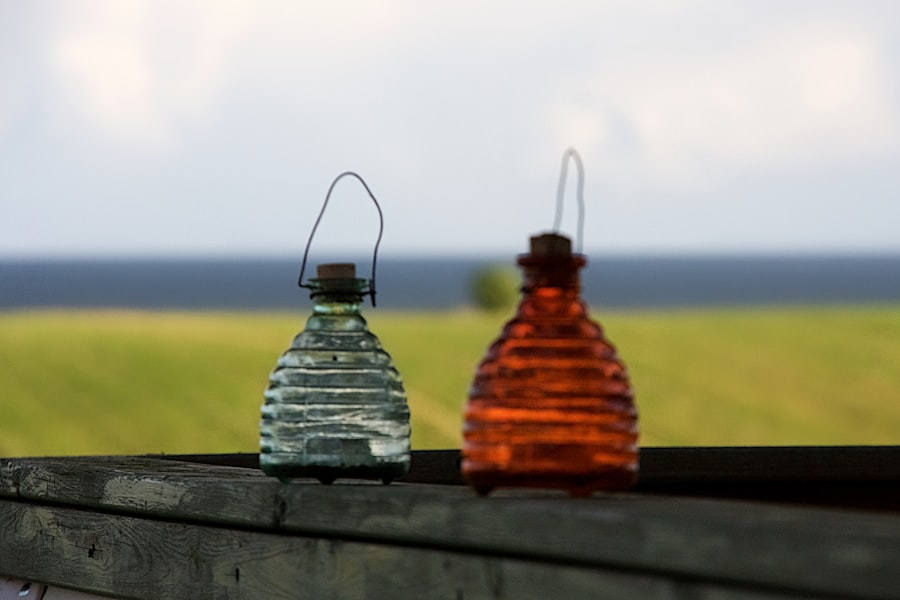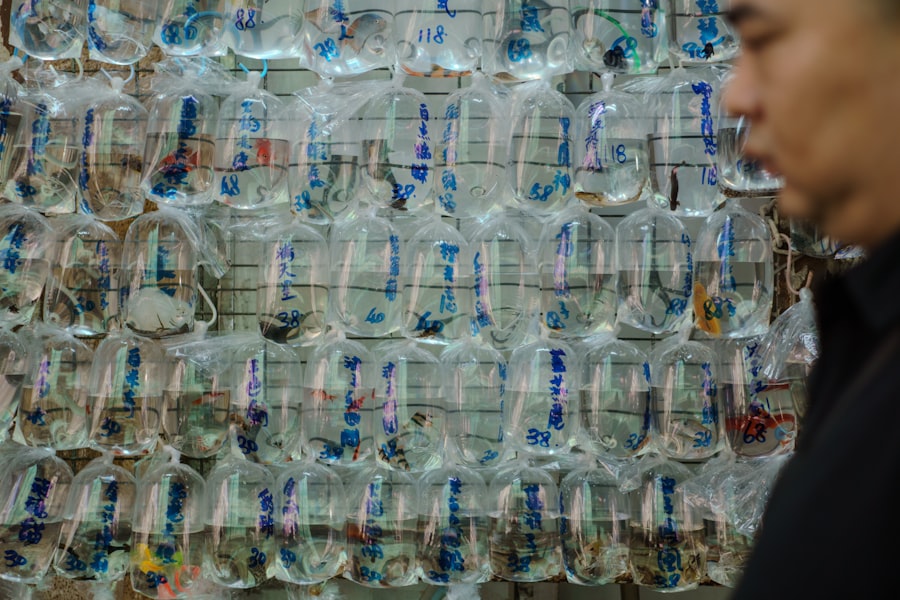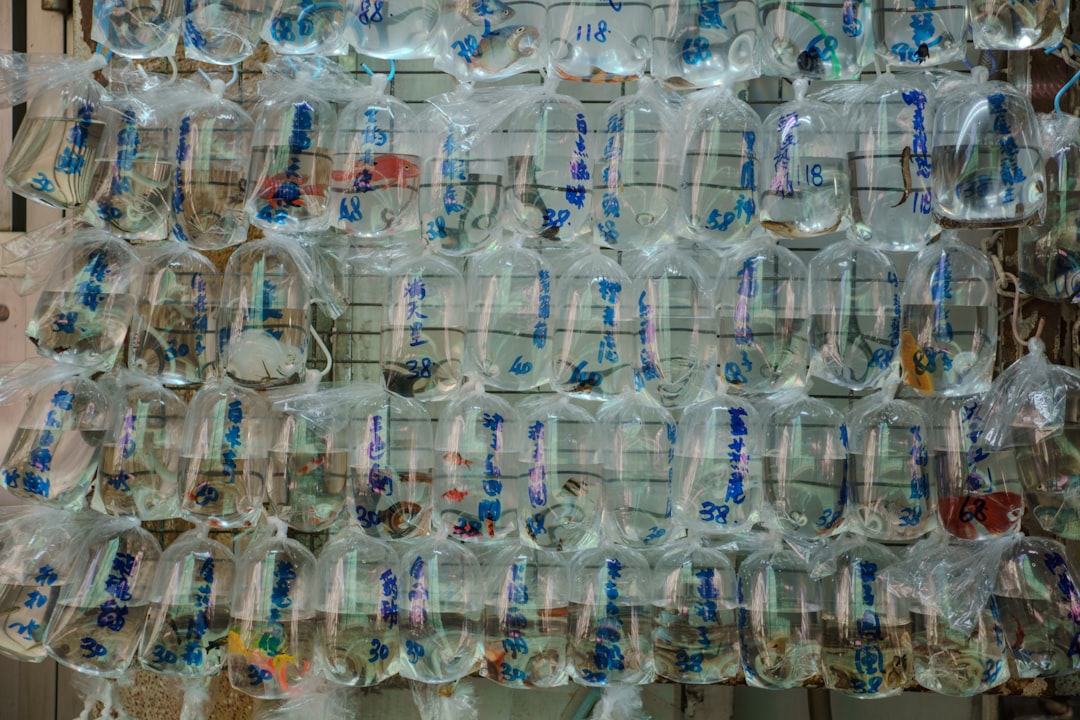The environmental consequences of bottled water production and consumption are profound and far-reaching. Each year, millions of plastic bottles are manufactured, transported, and ultimately discarded, contributing significantly to global plastic pollution. The production process itself is resource-intensive, requiring vast amounts of water and energy.
For instance, it is estimated that producing a single liter of bottled water can consume up to three liters of water in the manufacturing process. This inefficiency raises concerns about water scarcity, particularly in regions already facing challenges in accessing clean water. Moreover, the disposal of plastic bottles poses a significant threat to ecosystems.
Many bottles end up in landfills, where they can take hundreds of years to decompose. In addition, a substantial portion finds its way into oceans and waterways, leading to devastating effects on marine life. Animals often mistake plastic for food, resulting in ingestion that can be fatal.
The environmental footprint of bottled water extends beyond just the bottles themselves; the transportation of these products also contributes to greenhouse gas emissions, further exacerbating climate change.
Key Takeaways
- Bottled water has significant environmental impacts, including plastic waste and resource depletion.
- Marketing tactics often exaggerate health benefits to boost sales.
- Bottled water is not always safer or healthier than tap water.
- The cost of bottled water is substantially higher than tap water.
- Ethical and regulatory concerns surround the sourcing and distribution of bottled water.
The Marketing Tactics of Bottled Water Companies
Bottled water companies employ a variety of marketing strategies designed to create a perception of necessity and desirability around their products. One of the most effective tactics is the use of branding that emphasizes purity and health benefits.
This imagery is carefully crafted to suggest that bottled water is not only a convenient choice but also a superior alternative to tap water. Additionally, these companies frequently leverage celebrity endorsements and sponsorships to enhance their brand image. By associating their products with well-known figures or high-profile events, they create an aspirational quality that appeals to consumers.
This strategy is particularly effective in targeting younger demographics who are influenced by trends and social media. As a result, bottled water is often perceived as a lifestyle choice rather than just a beverage, further entrenching its place in modern consumer culture.
The Health Concerns of Bottled Water

While bottled water is often marketed as a healthier alternative to sugary drinks, there are several health concerns associated with its consumption. One significant issue is the potential for chemical leaching from plastic bottles. Many bottles are made from polyethylene terephthalate (PET), which can release harmful substances when exposed to heat or stored for extended periods.
These chemicals, such as antimony and bisphenol A (BPA), have been linked to various health problems, including hormonal disruptions and increased cancer risk. Furthermore, the misconception that bottled water is always cleaner than tap water can lead to complacency regarding hydration choices. In reality, many bottled waters are sourced from municipal supplies, which may not be significantly different from tap water in terms of quality.
This lack of transparency can mislead consumers into believing they are making healthier choices when they may not be. As awareness grows about these health risks, consumers are increasingly questioning the safety and necessity of bottled water.
The Cost of Bottled Water
| Metric | Value | Unit | Notes |
|---|---|---|---|
| Average Cost per Gallon | 8.26 | USD | Compared to tap water cost of approximately 0.004 per gallon |
| Annual Consumption in US | 14.4 | billion gallons | Data from recent years |
| Plastic Waste Generated | 38 | billion bottles | Estimated yearly bottled water consumption in the US |
| Energy Used per Liter | 3.4 | MJ (megajoules) | Includes production and transportation |
| Carbon Footprint per Liter | 0.35 | kg CO2 equivalent | Average emissions from bottled water lifecycle |
| Cost of Tap Water per Gallon | 0.004 | USD | Average municipal tap water cost |
The financial implications of bottled water consumption are often overlooked in discussions about its convenience and appeal. On average, bottled water costs significantly more than tap water—sometimes up to 2,000 times more expensive per gallon. This stark contrast raises questions about the economic viability of relying on bottled water as a primary source of hydration.
For families and individuals on tight budgets, the cumulative cost of purchasing bottled water can be substantial over time. Moreover, the hidden costs associated with bottled water extend beyond the price tag on the bottle itself. The environmental impact and health concerns related to plastic waste and chemical exposure can lead to long-term societal costs that are not immediately apparent.
As communities grapple with the consequences of plastic pollution and health issues linked to bottled water consumption, it becomes clear that the financial burden extends far beyond individual purchases.
The Truth About Bottled Water Regulations
The regulatory framework governing bottled water is often perceived as stringent; however, the reality is more complex. In many countries, bottled water is subject to less rigorous oversight than municipal tap water. In the United States, for example, the Food and Drug Administration (FDA) regulates bottled water as a food product rather than a public utility, which means it may not be held to the same safety standards as tap water provided by local municipalities.
This regulatory disparity raises concerns about the quality and safety of bottled water. While some companies adhere to high standards and conduct regular testing, others may cut corners in pursuit of profit. Consumers often lack access to comprehensive information about the source and treatment processes for bottled water, making it difficult to make informed choices.
As awareness grows about these regulatory gaps, there is increasing demand for greater transparency and accountability within the bottled water industry.
The Impact of Bottled Water on Local Communities

The extraction of water for bottling purposes can have significant repercussions for local communities, particularly in areas where water resources are already limited. In some cases, companies have been accused of depleting aquifers and natural springs, leading to reduced access to clean drinking water for residents. This situation can create tension between corporations seeking profit and communities striving to protect their vital resources.
Additionally, the economic benefits touted by bottled water companies often fail to materialize for local populations. While these companies may provide temporary jobs during the bottling process, they frequently do not contribute meaningfully to the local economy in terms of sustainable employment or infrastructure development. As communities witness the depletion of their natural resources without corresponding benefits, frustration and resentment towards the bottled water industry can grow.
The Alternatives to Bottled Water
As awareness of the environmental and health issues associated with bottled water increases, many consumers are seeking alternatives that are both sustainable and cost-effective. One popular option is reusable water bottles made from stainless steel or glass, which can significantly reduce plastic waste while providing a safe way to carry drinking water. These bottles can be filled with tap water or filtered water at home, offering a convenient solution without the environmental impact associated with single-use plastics.
Another alternative gaining traction is home filtration systems that improve tap water quality by removing impurities and contaminants. These systems range from simple pitcher filters to more advanced reverse osmosis units that provide high-quality drinking water at a fraction of the cost of bottled options. By investing in these alternatives, consumers can enjoy clean drinking water while minimizing their ecological footprint and supporting local resources.
The Truth About Bottled Water’s Origin
The origins of bottled water are often shrouded in marketing hype that obscures its true nature. Many consumers believe that bottled water comes exclusively from pristine natural springs or remote sources; however, this is not always the case. A significant portion of bottled water is sourced from municipal supplies—essentially repurposed tap water that has undergone minimal treatment before being packaged for sale.
This revelation challenges the perception that bottled water is inherently superior to tap water. In fact, studies have shown that some brands of bottled water contain similar levels of contaminants as municipal supplies. This lack of transparency regarding sourcing practices raises ethical questions about consumer trust and the responsibility of companies to provide accurate information about their products.
The Bottled Water Industry’s Influence on Public Perception
The bottled water industry wields considerable influence over public perception through strategic marketing campaigns and public relations efforts. By promoting narratives that emphasize convenience, health benefits, and environmental stewardship, these companies shape consumer attitudes toward their products. This influence extends beyond individual purchasing decisions; it also impacts broader societal views on hydration and access to clean drinking water.
As a result, many consumers have come to view bottled water as an essential part of their daily lives, often overlooking the implications of their choices. This perception can create barriers to addressing critical issues such as plastic pollution and access to safe drinking water in underserved communities. By fostering a culture that prioritizes convenience over sustainability, the bottled water industry perpetuates a cycle that undermines efforts toward environmental responsibility and social equity.
The Ethical Issues Surrounding Bottled Water
The ethical considerations surrounding bottled water consumption are multifaceted and complex. At its core lies the question of resource allocation—should corporations have the right to extract natural resources for profit when local communities may be struggling with access to clean drinking water? This dilemma raises important ethical questions about corporate responsibility and social justice.
Furthermore, the marketing tactics employed by bottled water companies often exploit consumer fears regarding tap water safety without providing adequate context or information about their own products’ origins. This manipulation can lead consumers to make choices based on misinformation rather than informed decision-making. As awareness grows about these ethical issues, there is an increasing call for accountability within the industry and greater emphasis on sustainable practices.
The Future of the Bottled Water Industry
The future of the bottled water industry appears uncertain as consumer attitudes shift toward sustainability and environmental responsibility. Increasing awareness of plastic pollution and health concerns associated with bottled products has prompted many individuals to reconsider their hydration choices. As alternatives such as reusable bottles and home filtration systems gain popularity, traditional bottled water sales may face significant declines.
In response to these changing dynamics, some companies within the industry are beginning to adapt by investing in sustainable practices and exploring eco-friendly packaging options. Innovations such as biodegradable bottles or refill stations in public spaces reflect an effort to align with consumer values while addressing environmental concerns. However, whether these changes will be sufficient to counteract growing skepticism remains to be seen.
As society grapples with pressing issues related to resource management and environmental sustainability, the future trajectory of the bottled water industry will likely depend on its ability to evolve in response to consumer demands for transparency, accountability, and ethical practices.
The bottled water industry has come under scrutiny for its environmental impact and the quality of its products. A related article that delves deeper into these issues can be found at this link.
WATCH THIS! The $400 Billion Water Lie: Why Bottled Water Is a Scam
FAQs
What is the bottled water industry?
The bottled water industry involves the production, packaging, and distribution of water in plastic or glass bottles for consumer use. It includes various types of water such as spring water, purified water, mineral water, and sparkling water.
Why has the bottled water industry been exposed?
The bottled water industry has been exposed due to concerns about environmental impact, misleading marketing practices, water source depletion, and the quality and safety of the water being sold. Investigations and reports have highlighted issues such as plastic pollution, excessive water extraction, and false claims about health benefits.
What environmental concerns are associated with bottled water?
Environmental concerns include plastic waste from single-use bottles, carbon emissions from production and transportation, and the depletion of natural water sources. Many plastic bottles are not recycled properly, contributing to pollution in oceans and landfills.
Are bottled water products regulated for safety?
Yes, bottled water is regulated by government agencies such as the U.S. Food and Drug Administration (FDA) in the United States. These regulations set standards for water quality, labeling, and manufacturing practices to ensure consumer safety.
How does bottled water compare to tap water?
In many regions, tap water is subject to strict safety regulations and is often as safe as or safer than bottled water. Bottled water can be more expensive and may not always offer significant quality advantages over tap water.
What are the health claims made by bottled water companies?
Bottled water companies often claim benefits such as purity, enhanced mineral content, or improved taste. However, some of these claims have been challenged as misleading or unsubstantiated by scientific evidence.
What alternatives exist to reduce reliance on bottled water?
Alternatives include using reusable water bottles, drinking tap water where safe, installing home water filtration systems, and supporting public water infrastructure improvements to provide clean and accessible drinking water.
How can consumers make informed choices about bottled water?
Consumers can research the source and quality of bottled water brands, check for certifications, consider environmental impact, and compare costs and benefits with local tap water options before purchasing bottled water.
